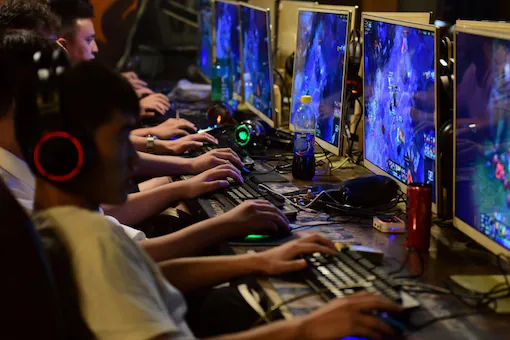Are the Chinese Gaming restrictions affecting the eSports Competition Circuit?

One of the latest developing trends that has seemingly caught the attention of eager younger audiences is the broadcasting and live streaming of online gaming competitions featuring the very best professional gamers in the world, with these events now being more commonly known as eSports.
While this trend continues to soar in popularity, one of the gaming industry’s biggest global markets has since introduced new restrictions affecting the overall playing time that minor audiences may indulge in online gaming activities, which could in turn have a lasting impact on the eSports community.
Despite bolstering one of the gaming industry’s most popular player base amongst minor audiences, the Chinese government has since introduced a series of restrictions directed towards the demographic in an effort to combat the amount of time younger players are spending playing online games across various platforms.
These restrictions were introduced in August last year and have since focused on limiting the playing time that eighteen or younger aged players spend online via gaming as the restrictions may only allow youngsters to play on a selective time period on Fridays, Saturdays and Sundays (between 8pm and 9pm), as well as during any public holiday.
Such restrictions have now counteracted or changed the prior laws introduced back in 2019 that only allowed minor players to partake in such activities for ninety minutes per day on weekends and public holidays while online gaming services were banned from providing such amenities to younger players outside of these required hours.
While these new restrictions have certainly taken a much more open/lenient approach to the hours that minor audiences are able to play across online gaming platforms, it cannot be understated on how great of a market China is for such a growing industry which is reflected in the staggering 62.5% of minor online gamers with more than 13.2% of youngsters playing mobile games for longer than two hours per day across most working days during the week.
With these restrictions now set in play for a large proportion of online gaming communities, this could have a damning effect on the Chinese eSports circuit and the expectations that such a sector may have in taking further strides forward with future streaming broadcasts across the country.
- Will eSports be affected by the latest Chinese gaming restrictions:
Given the growing popularity that such a trend has developed throughout the past decade, these restrictions are sure to be a major stag towards the continued upsurge in eSports popularity throughout the country of China.
While the Chinese National Bureau of Statistics official confirmed that eSports would be classed as an official sport back in 2019, further ambitions are expected to be tainted in the development of training players under the age of 18 who may be aspiring to take up a future role within the sporting sector throughout the coming years.
Almost every major Chinese eSports competition is now prohibiting minor players on entering or competing at such events, even for the various teams available.
Many eSports operators including the highly popular League of Legends hosts, TJ Sports, have since complied with these latest regulations with bans being issued out to minors from attending numerous events centered around the popular gaming title including League of Legends Pro League and the Development League.
China has already taken prior action to ban any activity related to betting on eSports events which is completely differential to the available US based sportsbooks in states such as Michigan as suggested by OLBG.
- How will this impact the next generation of Chinese eSport players?
The ambition that younger audiences throughout China still have for eSports remains at a respectable stage, but with a lack of knowledge/training for such events, the eSports player base throughout China could certainly dwindle as the years roll on should the government retain these restrictions.
Youngers players may not be able to grasp the full level of expertise required to compete at a professional level for such events and team orientated games which of course are predominantly featured at eSports outlets.
There is a greater possibility that the Chinese government could look to invest in youth training camps for younger players given the prior success that minors have brought towards the eSports industry in China as well as the fact that minors also benefit greatly from such events due to the quicker reactions that they may possess making for a much more competitive circuit and potentially drawing in even more suitors towards the eSports market.
As a whole, the future surrounding further eSports developments within China remain unclear while these restrictions remain in fruition given how limited the play time that minors will be required to partake in.
However, should the Chinese government look to orchestrate any future developments to help encourage more younger gamers to become further affiliated with the professional gaming circuit, China’s eSports community could still continue to develop at any acceptable rate given the country’s mass population and wider player base.
